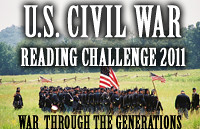It has been awhile since I reviewed The Three Colonels in 2012.
It seems appropriate that I bring to you a guest post and excerpt from author Jack Caldwell for the final chapter, Rosings Park, in 2021. Stay tuned for the giveaway at the end.
About the Novel:
A decade ago, groundbreaking novel THE THREE COLONELS began the epic Jane Austen’s Fighting Men series and transformed Austenesque literature with its blend of Regency romance and historical fiction. ROSINGS PARK is its long-awaited conclusion!
The Napoleonic Wars are finally over, and Britain seeks to rebuild after a generation of war. Gone is the “green and pleasant land” of the early Regency. In its place, a natural disaster on the other side of the world exacerbates the country’s woes: economic depression, widespread hunger, industrialization, and civil unrest. Great Britain faces ruin and revolution.
Fitzwilliam and Elizabeth Darcy agree to take in the young and spirited daughter of Lydia Wickham, and all the while, their beloved Pemberley is being endangered by riotous Luddites. Colonel Sir Richard Fitzwilliam marries Anne de Bourgh but finds the management of Rosings Park no easy matter, especially with Lady Catherine de Bourgh ready and eager to offer advice. Haunted by despair and gravely wounded in body and spirit, a bitter Colonel Sir John Buford returns to England to be nursed by his wife, the former Caroline Bingley. Then, an evil out of the past returns to wreak vengeance on Rosings Park, and the Darcys, Fitzwilliams, Bufords, and their friends face a devastating truth: HAPPILY EVER AFTER MUST BE EARNED.
Doesn’t that sound delicious?! I have this on my TBR list, but for now, please welcome Jack Caldwell:
Greetings, everybody. Jack Caldwell here.
I’m happy to have the opportunity to talk about my latest novel, ROSINGS PARK: A Story of Jane Austen’s Fighting Men. This book is the closing chapter to the series I started with THE THREE COLONELS: Jane Austen’s Fighting Men. There are currently two other books in the series, THE LAST ADVENTURE OF THE SCARLET PIMPERNEL and PERSUADED TO SAIL.
The Jane Austen’s Fighting Men series is a unique one in Austen fiction. I take the immortal characters created by Miss Austen and insert them into the historical events of the Regency period, the most notable being the Hundred Days Crisis of 1815. I also assume that all of her characters knew and interacted with each other. This leads to some interesting stories, I can assure you!
The first three books were companion novels—separate stories that happened in and about the same time, but with some limited interaction. They can be read as stand-alones, but it is more fun to read them all and enjoy the small amount of interweaving between them all.
ROSINGS PARK is different. A sequel to THE THREE COLONELS (which was itself a sequel to PRIDE AND PREJUDICE and SENSE AND SENSIBILITY), ROSINGS PARK acts as the concluding chapter to the series. THE THREE COLONELS was about the Battle of Waterloo. ROSINGS PARK is what happened afterwards. And boy, did a lot happen! Economic depression, rapid industrialization, volcanic explosions, civil unrest, and crop failures. Regency Britain was in turmoil and our favorite characters are caught up in the midst of it.
Who are those characters? Fitzwilliam and Elizabeth Darcy, of course, are major players in my little drama. Colonel Richard Fitzwilliam has been knighted, married Anne de Bourgh, and lives at Rosings with the irksome Lady Catherine. Meanwhile, Sir Richard’s good friend, Sir John Buford, suffers grievous injuries received at Waterloo, and his wife, the former Caroline Bingley, struggles to nurse him back to health. Meanwhile, there are unknown forces out to destroy Rosing Park.
Excited yet? I hope so! Below is an excerpt.
To set the scene, it is the summer of 1817. Darcy, Elizabeth, and their children are at a house party at Rosings Park, now controlled by their cousins, Sir Richard and Anne Fitzwilliam. Also visiting are the Fitzwilliams’ friends, Sir John and Caroline Buford. The Darcys have taken in Chloe Wickham, eldest daughter of the late George Wickham and the former Lydia Wickham (now remarried), and Richard has problems with that.
Dinner that night was far less taxing than Darcy anticipated. Surprisingly, this was due to the attendance of Mr. and Mrs. Collins. Elizabeth, overjoyed with the prospect of renewing acquaintance with the lady who had once been her particular friend, largely spent her time in close and happy conversation with Mrs. Collins, Anne, and Mrs. Jenkinson. She had little discourse with Sir Richard; therefore, her coolness to his cousin was undetected.
The burden of entertaining Lady Catherine, therefore, fell to Darcy, and in this he was joined by Richard and Mr. Collins. That task would have been easier without the tiresome, simpering observations of the Hunsford rector, but it was a burden with which Darcy was well acquainted, and he carried out his duty with perfect composure.
Lady Catherine and the Collinses did not leave until it was nearly nightfall. The ladies excused themselves and retired above stairs. Darcy was not of a mind to play billiards, so he and his cousin had port in the library. Richard took his ease in a chair while Darcy, glass in hand, perused the bookshelves.
“I see you managed to procure a copy of Waverley. I am impressed,” said Darcy.
“It was a gift from Father—one of the last I received before his illness. He was not one for novels, but he loved the book. I suppose I should read it.” Richard gestured at the chair beside him. “I am tired of straining my neck to look up at you. You are far too tall. Come and sit—and tell me why your wife is annoyed with me.”
Richard’s comment caught Darcy off guard while he was in the act of sitting. He paused, and then slowly made himself comfortable. Apparently, Elizabeth’s feelings were detectable after all. Darcy needed a sip to settle his thoughts.
“Well?”
Darcy set down his glass and glared at his cousin. “She took offense at your dismissal of Chloe.”
Richard stared at him as though he thought Darcy had lost his mind. “You cannot be serious.”
“I am.”
Richard sat forward, his face working. “You expect me to welcome Wickham’s brat into my home?”
“Richard. You are speaking of my niece and ward. I shall thank you to keep a civil tongue in your head.”
Richard flushed in anger but nodded. “I mean no offense to you or Lizzy, but I cannot set eyes on that child and not see Wickham’s lying face.”
Darcy beat down his first impulse—to pack his family and leave Rosings at first light—and attempted to speak rationally. “You are a reasonable man, Fitz. Surely, you know Chloe is innocent of Wickham’s sins.”
“I know that!” Richard snorted. “It is just that…” He waved his hands, seemingly unable to say more.
A horrible thought occurred to Darcy. “Pray tell me you do not subscribe to Aunt Catherine’s appalling notion about bad blood.”
Richard shook his head. “Of course not.” He dropped his elbows to his knees and held his face in his hands. Darcy could see his cousin was struggling, but he offered no solace.
The man deserved no such relief.
“It is her eyes,” Richard mumbled.
Darcy did not respond. He simply waited for the rest. It was not long in coming.
“She has Wickham’s eyes, Darce. I hate those eyes.” He looked up at his cousin. “I look at your ward, and I see all the pain that man caused our family.
“I saw it when we were young. I saw he was nothing but a jealous, devious bully and scoundrel. He used everyone and cared for no one. You were blind to it at first. You were so young, so lonely. You wanted a friend badly. I did what I could to protect you, but I was either at Matlock, or school, or the army. You had no one but Wickham. When your blinders finally fell, my uncle would not listen to you. He would do nothing!”
Darcy took a deep breath. “You know how charming, how persuasive Wickham could be, even in his youth. Father felt sorry for him, given the woman who was his mother. He thought I could be a good influence on his godson.
“Later, after Mother’s death, Father lost his way. She was his joy, and joy left him when she was gone. Wickham was agreeable, he was amusing, and I…I was serious and reserved. I was the heir. I was the responsible one. I was the one he depended on to care for Georgiana and Pemberley. He told me this in his last days—”
“Bah!” Richard cut him off. “Uncle George refused to accept what Wickham was!
Sending him to school, paying off his debts. He should have cast him off! He should have been more concerned for you!” He clenched a fist in his other hand. “You cannot know how much I hated Wickham. I wanted to kill him, you know. After Ramsgate, I could have cut him down in the street at the slightest provocation.”
“I am happy you did not,” Darcy said, reaching out and tapping his cousin on the knee. “I have grown used to your annoying presence, as has Georgiana.”
Richard returned his gaze to him.
“I have made my peace with my childhood. I have forgiven Father. No man, no matter how good, is perfect. I certainly am not. I have learned that hate and resentment are a poison to one’s soul.
“Wickham is dead, Fitz. But even he did something good. He left the world three lovely little girls. The Bingleys have Phoebe, and the Tuckers Rosanna. Elizabeth and I are honored we have been given the charge to raise Chloe, and we shall do so to the best of our ability.”
“Yes, you are very generous—”
Darcy cut him off. “This is not generosity, not in the least. You may as well call us selfish at once, because in our hearts, Chloe is ours—Elizabeth’s and mine. We shall raise her as our daughter. And once she is old enough to make the choice, we shall adopt her if that is her wish.”
Richard was shocked. “You…you would adopt Wickham’s—”
“We stand ready to adopt my ward—my sister Lydia’s child,” Darcy stated firmly. “A sweet and loving little girl, virtually abandoned by her mother. We care not who fathered her. I shall be her father now.” He paused. “And we require our relations and acquaintances to respect our decision and accept my family. My entire family.” He offered a smile and softened his tone. “She would like another cousin.”
“I…I do not know if I can do that.” He bit his lip. “I am well rebuked for my treatment of—of your ward. I shall do better. I shall offer her every courtesy. But pray do not ask more of me.”
“You have much to think on.”
“I do.” He looked up bleakly. “I owe you and Lizzy an apology.”
Darcy shrugged. “For myself, I require nothing. Elizabeth is generous, as I have reason to know.”
“And…the child?”
“Treat her well and we shall have no complaints.”
Richard nodded and changed the subject. “Care for another port?”
Darcy eyed his nearly empty glass. “I believe this was your father’s favorite vintage.”
“Yes, the last of the case from his cellar.” At Darcy’s astonishment, he laughed ruefully.
“Port is made to be drunk, Darce. Besides, I think Father would approve. Nothing was more important to him than family.”
“True.” After Richard refilled their glasses, Darcy raised his, looking up at the ceiling.
“To Hugh Fitzwilliam and George Darcy—the two men who taught me what it means to be a father.”
Richard smiled, staring straight at his cousin. “To fathers.”
Thank you, Jack, for sharing this excerpt and for the giveaway!
To celebrate, I am giving away two (2) ebook copies of ROSINGS PARK – a Story of Jane Austen’s Fighting Men in your choice of MOBI (Kindle) or EPUB format!
Ends Feb. 9, 2021
WINNERS ARE Anna (Diary of an Eccentric) and Alexandra!






 Good day, everybody. Jack Caldwell here, the author of
Good day, everybody. Jack Caldwell here, the author of  The first thing you must know is that I’m a guy. Therefore, I own my own computer. That may sound like a strange boast, but from what I understand, many of my female compatriots must fight the rest of their family to get computer time to write. I don’t have that problem. This machine is mine. Nobody touches it but me!
The first thing you must know is that I’m a guy. Therefore, I own my own computer. That may sound like a strange boast, but from what I understand, many of my female compatriots must fight the rest of their family to get computer time to write. I don’t have that problem. This machine is mine. Nobody touches it but me! Believe it or not, I write in bed while I sleep — while I dream. You see, I have this uncanny ability to control my dreams. I run the plot of my current writing project through my mind like a movie while I sleep. The best part is when I run into a dead end, stop everything, back up, and try again on a slightly different path, all while remaining asleep. The next day, I transcribe my dream into the computer. Cool, huh?
Believe it or not, I write in bed while I sleep — while I dream. You see, I have this uncanny ability to control my dreams. I run the plot of my current writing project through my mind like a movie while I sleep. The best part is when I run into a dead end, stop everything, back up, and try again on a slightly different path, all while remaining asleep. The next day, I transcribe my dream into the computer. Cool, huh?
 Writing is a lot of work. Some days I put down only a few hundred words, other days several thousand. But I need to write every day. Even at that pace, it takes between six to nine months to write a novel, averaging 100,000 words.
Writing is a lot of work. Some days I put down only a few hundred words, other days several thousand. But I need to write every day. Even at that pace, it takes between six to nine months to write a novel, averaging 100,000 words.







